17+ Sample Management Contracts
-
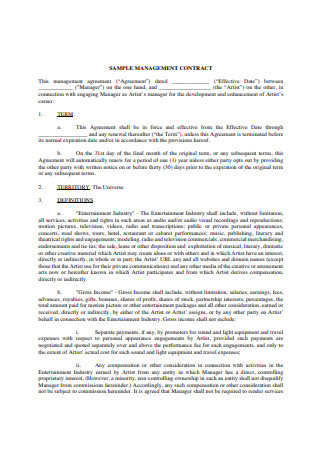
Sample Management Contract
download now -
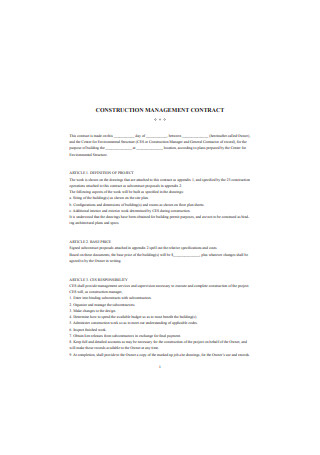
Construction Management Contract
download now -
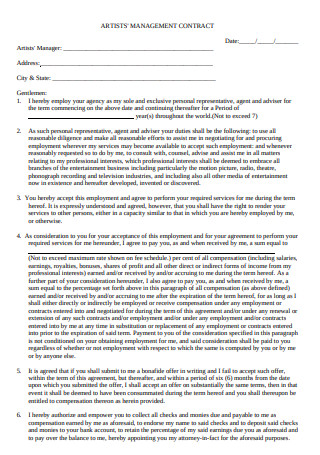
Artist Management Contract
download now -
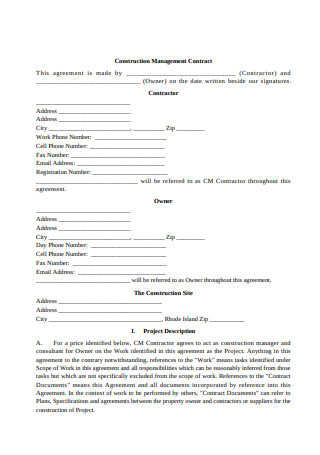
Construction Management Contract Sample
download now -

Risk Management Contract Cover Sheet
download now -
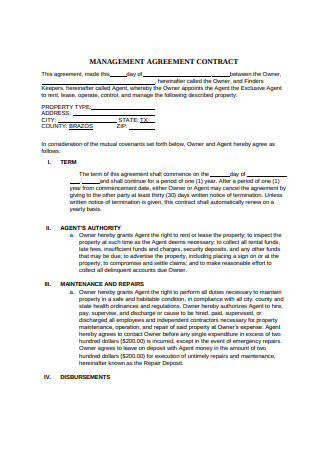
Management Agreement Contract
download now -
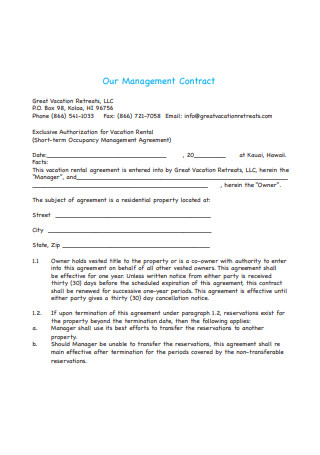
Management Contract Example
download now -
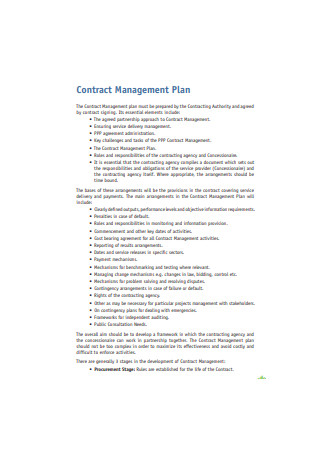
Contract Management Plan
download now -
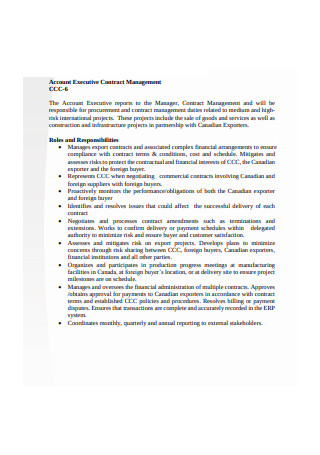
Account Executive Contract Management
download now -
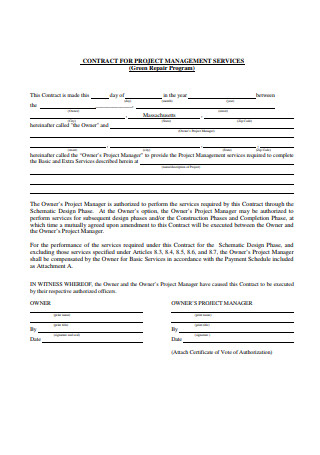
Project Management Contract
download now -
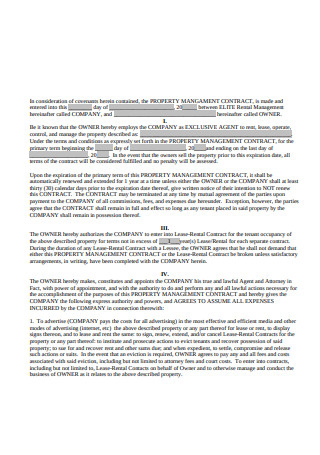
Property Management Contract
download now -
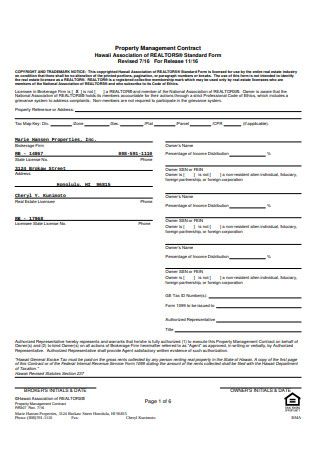
Sample Property Management Contract
download now -
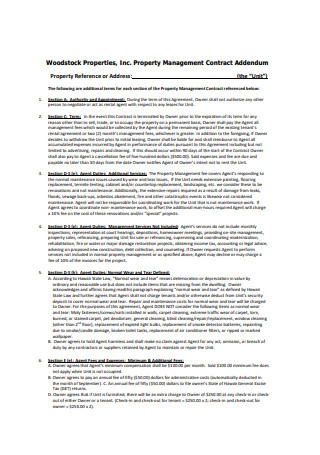
Basic Property Management Contract
download now -
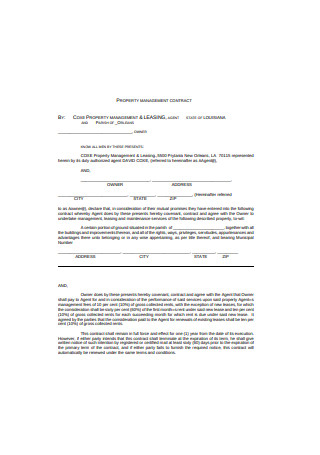
Sample Property Management Contract Example
download now -

Management Contract Format
download now -
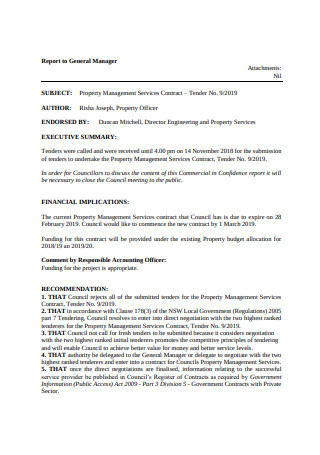
Property Management Services Contract
download now -

Basic Property Management Contract Format
download now -
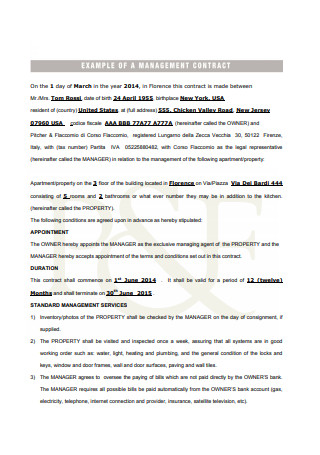
General Management Contract
download now -
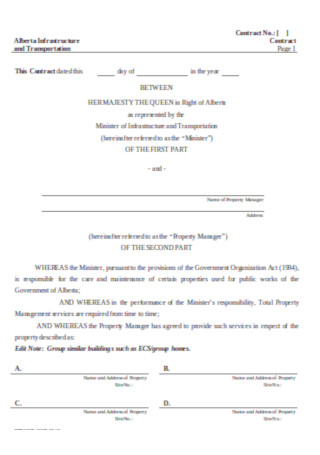
Sample Proposed Management Contract Template
download now -
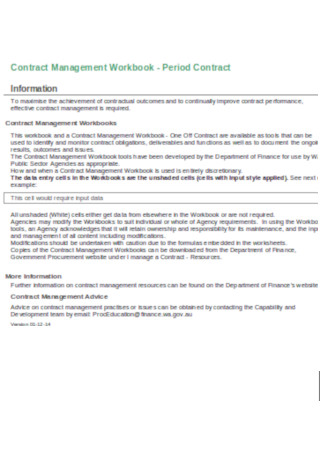
Contract Management Workbook Template
download now
What Are Management Contracts?
Management contract or agreement, in layman’s terms, is entrusting a project or department to someone else for a fee. How it works is that you assign a job to someone else while still maintaining authority over that department. Here’s an example: We have two people named John and Anna. John has a startup that sells carpets. He sells many rugs every month. However, John’s sales have gone down since a competing carpet company opened in the next block. Therefore, John has to find a way to market his product better than the other company. He decides to build a website to make his products more accessible to people across the country. But the problem is, John is not knowledgable enough when it comes to building a website nor marketing his products. That’s when he forges a management contract with Anna’s business to develop and maintain a site for him for a fee. Anna is an independent contractor, but John still watches over her company’s performance as a basis for contract renewal.
This situation is just one of a few examples of where management contracts come in handy. We forge these contracts due to a lack of knowledge or skill in a particular field. Usually, this is useful in marketing. You get a specific company to market your business for you while you focus on your company’s sales and profits. It makes the process smoother and easier as you only have to focus on a few aspects of your business. But the downside to that is it will limit your managing capabilities in that specific aspect. For example, if an outside company runs your IT department, it usually slows down your troubleshooting capabilities. If in case you encounter IT-related issues, you’d have to wait for an on-site technician to troubleshoot for you.
There are also instances when management contract companies take full control over the operation of a business. The contracts, in this case, are renewable. Let’s use one of our personas earlier as an example. We have John. He’s a rich man who decides to build a hotel. The problem is, John is not knowledgeable in running the hotel or finds it too tedious to run it hands-on. Therefore, he hires a management company to run the hotel and create operational plans for him. John is in charge of funding the project and providing capital, while the management company is in charge of operating the whole business, from recruiting, training, to firing employees.
Management contracts also usually come in handy during the early stages of a business, especially in construction. They characterize one-time, short term projects with set deadlines. In large-scale operations, companies tend to hire outside help in the construction phase, as it’s more cost-effective. Once the project contract runs its course, that marks the end of the contract. However, management contracts should not be confused with business process outsourcing or BPO.
Management Contract Vs. Outsourcing
Outsourcing is commonplace nowadays that people tend to interchange their meanings. However, the difference couldn’t be more vast. We define forging a management contract as letting someone else manage or overlook the performance of a specific aspect in business. An example would be a custodian or landlord of a rental property. Though you own the apartment, someone else is overlooking its maintenance, the state of the tenants, executing the clauses of the rental contracts, etc.
Outsourcing, on the other hand, is the procurement of supplies or services. A company can usually do these tasks internally, but due to a few reasons, it’s just not possible. The most common type of outsourcing these days would be customer service. More and more businesses prefer to outsource their contact centers to countries outside the United States. This is because while it’s cost-effective, these centers also provide quality service.
The key takeaway here is outsourcing focuses on supplies and services rendered. The management contract, on the other hand, focuses on the entire operation of a business.
What are the Pros and Cons of a Management Contract?
Getting outside help can be tricky. If you’re someone who likes to micromanage a specific operation, you will find it hard to entrust some tasks to another business. Though we all want to manage everything on our own, it can be time-consuming and stressful. You need to weigh the benefits over the losses of hiring an independent company to do the task for you. It’s just like creating a strategic alliance agreement wherein you’d have to make sure it’s at its maximum profitability while expending fewer resources. Let’s take a look at the pros and cons of a management contract:
Pros
Since you are already letting someone else handle the whole or a part of the business operation, it would make the entire process smoother. It’s one less worry on your part. If you’re a startup, it would be hard for you to divide your attention between managing your business and taking care of IT-related issues, especially if you’re not that tech-savvy. Thus, hiring IT service providers would make much more sense. Most of the time, management contract companies are also more cost-effective compared to managing the process on your own. Take, for example, the music industry. If you’re a budding artist, you’d like to focus your attention on your development in the music industry and how you can take care of your competitors. You don’t want to start making music and produce your merchandise while combing through the artist agreement all at the same time. Another advantage of a management contract is that you are getting help from a paid professional. Therefore, it would put your mind at ease to know that everything is working fine in that department.
Cons
Though hiring outside help is cheaper compared to creating your team from scratch, sometimes, you can’t be sure of the quality that the company is producing. This instance is more evident in the case of construction. It would be difficult to tell whether the supplies were quality materials or substandard. By the time that you find out, it would have been too late, and the damage is already evident.
Another example would be hiring cleaning professionals. In the world of business, time is money. If the independent contractor does a sloppy job of cleaning a building, you’d need to contact the contractor for a do-over or a refund. It becomes time-consuming and stressful on your part.
In the end, hiring outside help is a matter of personal decision. Trusting a task or operation to a separate entity may be cheaper and would take one less worry off your back. On the other hand, it might cause you problems in the long run, especially if the quality of work is substandard. Trusting a professional versus doing the job in your backyard may require a lot of thought. In line with this, a good question you need to ask yourself is, “Would you rather hire professional pool cleaners for $60? Or would you rather hire your neighborhood teenager for $10 and does an excellent job at it?”
What are the Variants of a Management Contract?
You can use a management contract for different kinds of purposes. There are about three different categories or types that management contracts fall into: supply or service, maintenance management, and operational.
Management contracts can serve different kinds of purposes, depending on the kind of service that you would like to receive.
The Anatomy of a Management Contract
When drafting a management contract, we focus on the main points of the management contract. What are the important things that you need to include or discuss in the contract? Nicky LaMarco of Chron lists three core components in a management contract: conditions, duration, and computation of the management company’s fees.
How to Form a Management Contract with a Company
If you feel that your tasks are piling up, or if you feel that the process is getting too tedious, then maybe it’s high time for you to hire a management company. Sometimes, we know what should be in a contract or what clauses to include. But, just like drafting an employment contract or sales contract, the hardest part of any process is where to begin. Here’s a step-by-step process on how to use a management contract to your advantage:
Step 1. Calculate the Profitability
Before you hire outside help, try to determine first if it’s cost-effective. You can use a cash flow statement to find out if, upon hiring a management company, the cash inflow is still bigger than the cash outflow. Try to weigh in other factors as well, such as the timeliness of the service that you’ll be receiving. Look carefully at the pros and cons of recruiting a management company.
Step 2. Determine the Function/Operation You’d Like to Turn Over
The second step to forming a contract with another company would be to identify the function that you’d like to turn over. For small businesses, a management company is usually responsible for the maintenance (e.g., cleaning services, IT-related services) and accounting (e.g., payroll, bookkeeping) functions. Often, it’s more costly to hire an accountant over hiring an external company to do bookkeeping for you.
Step 3. Find Your Concessionaire
After determining the function that you will hand over, search for the right concessionaire for you. With the aid of technology, the information is already made available at your fingertips. You can search it through Google, and it would instantly provide you with the nearest concessionaire in your location. For large businesses, finding concessionaires are done through auctions/bidding. You can choose the route you’d like to take based on your budget.
Step 4. Draft Your Management Contract
Once you have chosen your concessionaire, you can start forging a covenant with them. Keep in mind the critical components of a management contract. Always be clear about your rules and violations, and the duration of your contract. Based on the function that you’ll be handing over, discern how you’d be paying the management company. It would be better to keep it performance-based for tasks that require customer contacts such as hotel operations, customer service, sales, or retail operations. On the other hand, it would be ideal to set an amount for the fee for accounting operations, construction, or catering services.
If you have trouble creating a management contract from scratch, you can always download our templates to give you a headstart. There are tasks that we cannot handle by ourselves, so we place our trust in third-party offices to take care of them. But make sure to choose carefully and try to weigh in the pros and cons first before forging a covenant with a management company.
